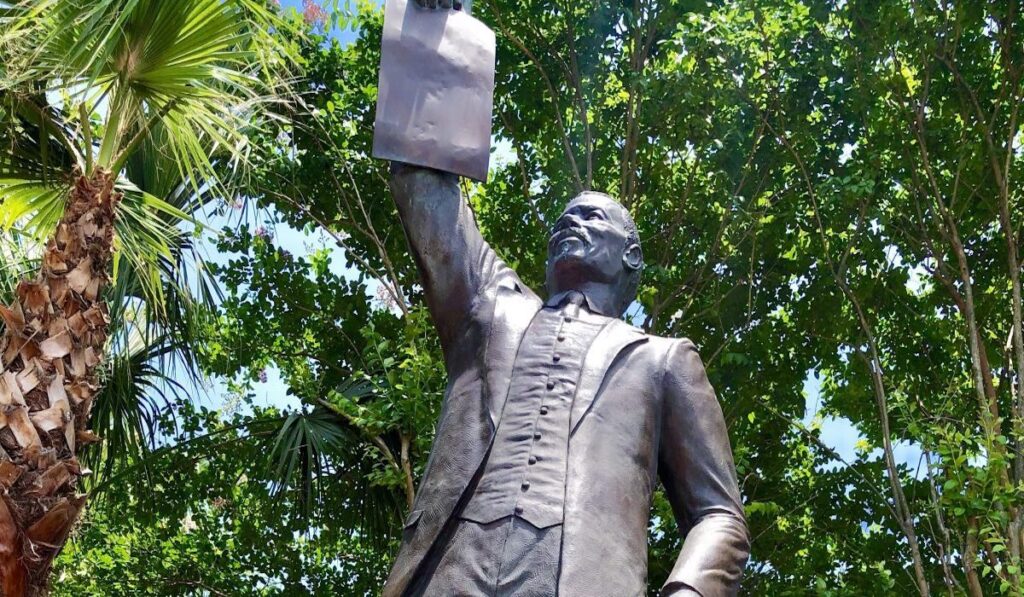For years, conservatives have dropped the ball on early childhood education policy, almost entirely ceding the playing field to the left. This has led to programs that lack guidance from some important conservative intuitions, like fiscal restraint, the centrality of family and the power of markets.
Early childhood education is a crucial kitchen-table issue for families and communities. Millions of children are raised by single parents, by families in which both parents have to work, and in homes where parents shoulder all manner of other challenges. Meanwhile, more parents look outside the home to aid with socialization, educational opportunities or preparation for schooling for their children.
While conservatives might believe that early childhood education outside of the home is an inferior option, keeping children home to be nurtured and taught is simply not a feasible option for many American families.
When conservatives have sought to offer an early childhood education agenda of their own, it has mostly started (and ended) with two time-tested responses: deregulation and tax cuts.
Now, cutting red tape and taxes are reasonable places to start. But they are only a beginning. In this week’s commentary, American Enterprise Institute scholars Frederick Hess and Michael McShane offer solutions to what is a significant, and very expensive, issue for many. We also have the latest news and analysis from the last week, including:
- Georgia tax collections continued to fall last month, dropping 1.1% compared to May of last year
- Georgia Ports Authority reports 22% growth in May container transport
- New projections suggests that public schools will lose an additional 2.4 million students by 2031
- After initially favoring the railroad, Georgia PSC to hear arguments on request to condemn land
Have a great weekend,
– Kyle Wingfield
Friday’s Freshest

Tort reform and Georgia’s judicial nightmare
In 2023, Georgia had the dubious honor of topping the American Tort Reform Association’s list of the country’s “Judicial Hellholes.” This was the second year in a row that Georgia held the No. 1 ranking – although this time it was a split title with Pennsylvania’s courts – due to what the ATRA calls an environment of lawsuit abuse and excessive tort costs. But there are now calls for reform.
Three civil servants and an embattled city auditor made May a month for waste, fraud and abuse
Authorities last month arrested a Sale City clerk and charged her with one felony count of stealing thousands of dollars of government funds, using a Sale City credit card to buy several personal items. This story, and more, in our monthly recap of waste, fraud and abuse in Georgia.
Ultimately, most Americans are skeptical of schemes against the wealthy because they believe they, or maybe their children, could be wealthy themselves someday. Having the freedom to enjoy the fruits of one’s own labor, however large they may grow, remains an essentially American dream.
A new approach for maintaining the interstate system is needed
As vacationers hit the road this summer, they probably give scant thought to the condition of the highways they’ll travel. But we can no longer take well-maintained roads for granted. The interstate highway system launched in 1956 and was basically complete by the 1980s. The average life expectancy of such roadways is about 50 years. You can do the math here.
As competition decreases, the cost of healthcare rises
In Georgia, the four largest health systems currently account for 51.6% of hospital beds available statewide. Unfortunately, most of the damage to a competitive landscape might already be done. In this era of consolidation, we are continuously trending toward a field of haves and have-nots. The have-nots are typically the remaining independent hospitals in rural communities.
Another crack at reforming occupational licensing?
Lt. Gov. Burt Jones and Speaker Jon Burns recently announced the creation of a joint Blue-Ribbon Committee to look into reported issues with the Secretary of State’s Professional Licensing Boards Division. This task could open the door for necessary reforms that make it easier to work and start a business in Georgia.
The Latest
Economy
State tax revenues continue downward slide
Georgia tax collections continued to fall last month, dropping 1.1% compared to May of last year, the state Department of Revenue reported last week. With just one month remaining in the current fiscal year, tax revenues are down by 1.2% compared to the first 11 months of fiscal 2023.
Georgia Ports Authority reports 22% growth in May container transport
The Georgia Ports Authority reported the volume of retailers and manufacturers using the Port of Savannah increased the container growth by 22%. According to the GPA, 490,330 20-foot container units were handled in May, a nearly 90,000 container boost compared to the previous year.
Education
APS announces sole finalist for its next superintendent
Atlanta Public Schools have selected Dr. Bryan Johnson as the district’s sole finalist to become the next superintendent. The board said it was a long process, and leaders engaged with students, teachers, community leaders and organizations to find the best fit. Johnson currently works as Executive Vice Chancellor and Chief Strategy Officer at the University of Tennessee at Chattanooga.
In many schools, declines in student enrollment are here to stay
According to the most recent data, public schools served 1.2 million fewer students in 2022-23 than they did in the last year before the COVID-19 pandemic. The COVID-era enrollment declines were due to a combination of well known factors, but new projections suggest that public schools will lose an additional 2.4 million students (4.9%) by 2031.
Government accountability
Georgia PSC to hear arguments on railroad request to condemn land
The Georgia Public Service Commission will hold oral arguments on a railroad’s request to condemn land for a proposed 4.5-mile-long spur. A PSC hearing officer previously ruled the Sandersville Railroad can take private land from several Sparta property owners, saying its proposed rail spur — the Hanson Spur — “serves a legitimate public purpose.” The Foundation covered this eminent domain battle in detail last year.
Georgia part of 19-state coalition challenging green energy transition mandate
Georgia, and 18 other states, filed a complaint with the Federal Energy Regulatory Commission in response to a rule it passed to advance unprecedented federal control over the U.S. electric grid. Currently, state regulatory bodies determine the most efficient mix of energy sources for their states.
Transportation
MARTA Board adopts $1.6B fiscal 2025 budget
MARTA Board of Directors has adopted a $1.6 billion fiscal 2025 budget for the agency, a spending plan that increases spending even as its ridership lags. The budget includes $654.5 million in net operating funds and $909.2 million for the agency’s capital projects. The capital budget includes $76 million for the agency’s multi-year Station Rehabilitation Program and $92 million for a $646 million investment on new railcars.
Georgia DOT approved a $43.4M resurfacing contract for I-75
Georgia DOT approved a construction contract for I-75 resurfacing. The maintenance work extends for 6.292 miles. The project limits are between I-285 / mile 238 and University Avenue / exit 244. On a per-mile basis, this equates to $6.9 million per mile. Interstate 75 is between 10–14 lanes wide in the vicinity. There are also collector-distributor lanes parallel to the mainline interstate in several locations.
Bonus

Juneteenth is a celebration of freedom
Our nation was founded on high-minded, beautiful principles. When we broke our bonds with England, we declared that all men were created equally. We said people were endowed by their Creator with unalienable rights. Among them, the right to life, liberty, and the pursuit of happiness. Emancipation, the catalyst for the Juneteenth celebration, marked a step toward fulfilling the shared promise of our nation–that all people, of all colors and creeds, have the right to life, liberty, and the pursuit of happiness.
The Supreme Court may be on the brink of radically restricting bureaucrats’ power
Unfortunately, getting Congress to stop evading its authority is an uphill battle. After all, we’re talking about an institution that systematically fails to do one of its primary jobs by passing legitimate budgets on a timely basis. Nevertheless, there is some light at the end of the tunnel, as the Supreme Court might soon stop being so deferential to executive branch agencies in interpreting the laws set by Congress.
IRS penalties on American taxpayers surged nearly 300% last year
The IRS hit Americans with $7 billion in tax penalties in 2023, a record-high level that marks a nearly 300% increase from the prior year. The majority of the fines were levied against those who underpaid their estimated quarterly income taxes, which is predominantly freelancers, gig workers and other self-employed individuals.
Quotes of the Week
“I always enjoyed playing ball, and it didn’t matter to me whether I played with white kids or black. I never understood why an issue was made of who I played with, and I never felt comfortable, when I grew up, telling other people how to act … I never recall trouble. I believe I had a happy childhood. Besides playing school sports, we’d play football against the white kids. And we thought nothing of it, neither the blacks nor the whites. It was the grownups who got upset … I never got into a fight that was caused by racism.” – Willie Mays, 1931-2024
“I believe Juneteenth can be a unifier because it recognizes that slaves didn’t free themselves and that they had help, from Quakers along the Underground Railroad, abolitionists both black and white like Frederick Douglass and William Lloyd Garrison, soldiers and many others who gave their lives for the freedom of the enslaved.” – Opal Lee, considered the Grandmother of Juneteenth
“We already have a choice system in education. If you are of means, you will move to a district where the schools are good and the houses are expensive like Palo Alto, California. If you’re really wealthy, you will send your kids to private school. So who’s stuck in failing neighborhood schools? Poor kids. A lot of them minority kids.” – Condoleezza Rice